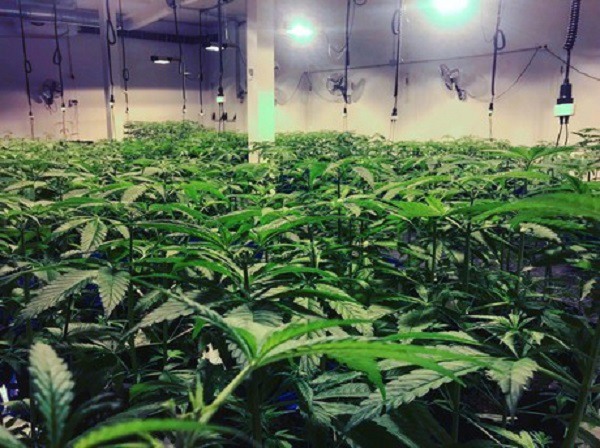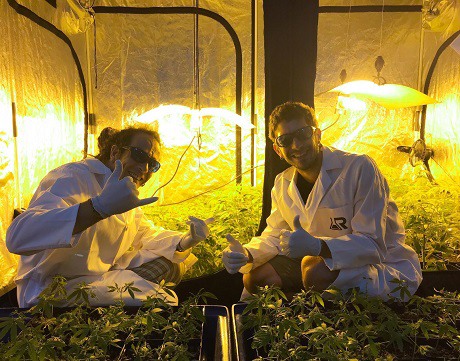The Corona crisis has surely proved to be challenging for the world economy. Many industries are going through hard times, and the ones operating have to carry out extra hygiene and social distancing measures. The same thing has happened in the cannabis industry: in North America, cannabis has been deemed essential, for instance. In Europe, the situation is similar, though slightly different.
Growing cannabis during the Coroncrisis
Spain is one of the most affected countries in the world from the coronavirus. However, that has not stopped the cannabis industry. Indeed, amidst the lockdown, perennial plants agricultural have been allowed to keep operating; this is why Relash Lab, a Granada-based cannabis company, never really stopped, regardless of the pandemic. “We have mother plants, and that qualifies us as a perennial plants agricultural company. We have never really stopped,” Davide Agostini with Relash Lab explains. “Since the beginning of the pandemic, the demand for CBD-rich cannabis has boomed. We have seen that many consumers opted for this type of product because many associations around Spain had to close. The response has been very positive, especially from those people who never tried it before; needless to say, this made me very happy.”

At the same time, operating in such trying times is not easy at all. “When this situation became more serious here in Spain, we were right in the process of the harvest and to plant the new crop,” he says. “When we carry out these operations, we usually hire some seasonal workers to help us out. However, everything inevitably changed, and we had to stop that entirely. We were only three growers taking care of something that usually eight people do, and we had to do it in one week - ten days. It was crazy, but we did it.”
Adapting to the 'new normal'
Everyone was very much unprepared to face a global pandemic, and therefore they had to adapt to the new work conditions. Same goes for Relash Lab. “We were caught unprepared,” Davide says. “I mean, who was prepared to deal with a global pandemic? Anyway, we decided not to call any seasonal workers, and adopted some additional hygiene measures.” Davide further explains that initially, when the lockdown in Spain forced people to stay at home for one week, there was a little delay in the grow. “We had to leave the flowers hanging a bit longer than usual before we could start with the curing process,” he says. “On top of that, we have taken additional safety measures. For instance, we have to change clothes every time we enter the facility, and we have to wear gloves and facemasks, which we change every three hours. We also bought a thermometer, so that we can check if we have a fever before we start working. There isn’t really much that we can do except for this: every member of our team is critically important, and we cannot afford that any of them get sick.”
Additional hygiene measures
Even though initially Davide and his colleagues had to adapt themselves to this ‘new normal’, nothing was particularly different than before, in terms of hygiene and cleanliness. “We grow in hydroponics, and we always are extremely careful to keep everything safe and clean. We always wore gloves and facemasks, for instance. However, now we change them way more often than before.”

In order to compensate for the inevitable slowing down of the operation, Davide points out that they have reduced the cycles by one. “We usually grow 5 crops per year,” he says. “One crop every two months during the year, with one month free. Therefore, we need to be extremely precise when it comes to timing. However, when this whole situation started, we had almost 1,500 clones freshly coming out of tissue culture, and we did not have enough people to take care of all of that. Therefore, we decided to cut one crop in our schedule, to plant those clones and to prolong their veg time and to shorten the flowering time. By growing one less crop per year, we surely experience a small loss, but by doing this, we did not have to throw away those clones, and we can keep operating without affecting the quality of our products.”
For more information:
Relhash Lab
+34 697 847 445
info@relashlab.com
relashlab.com
